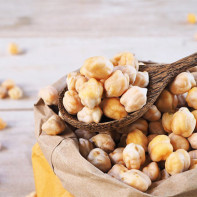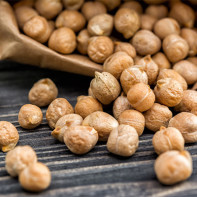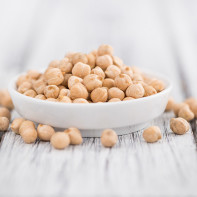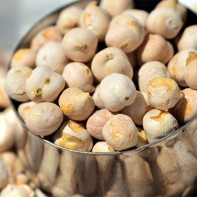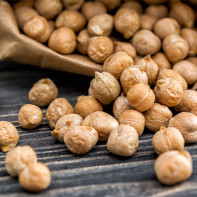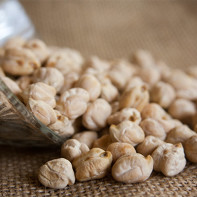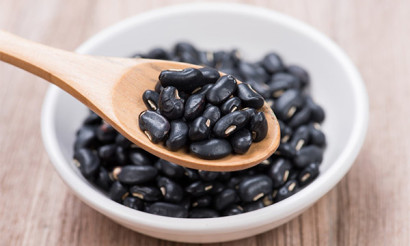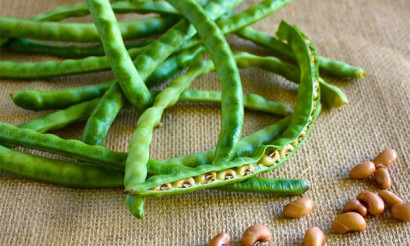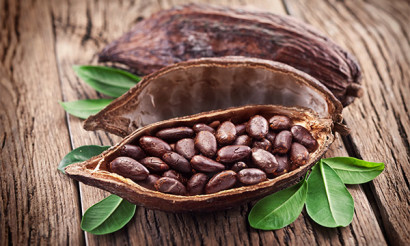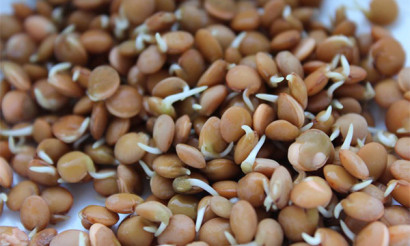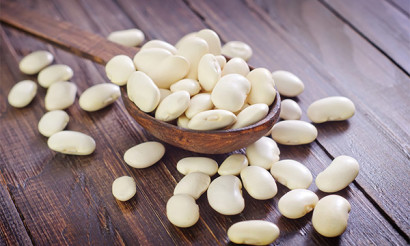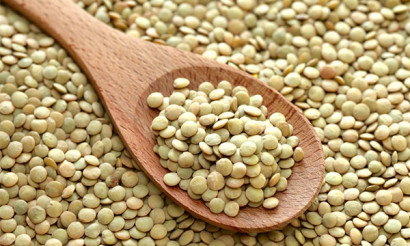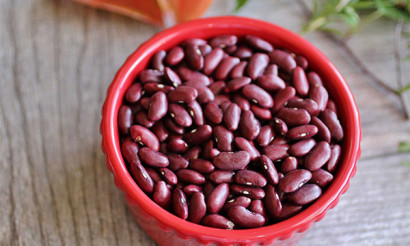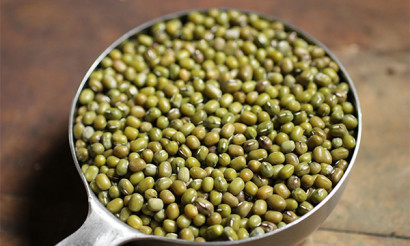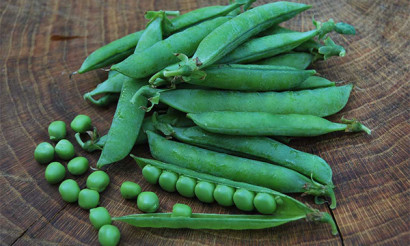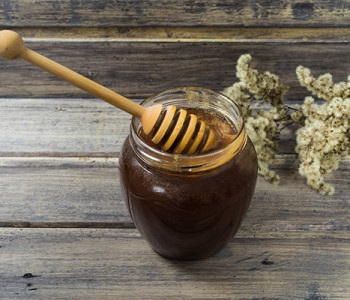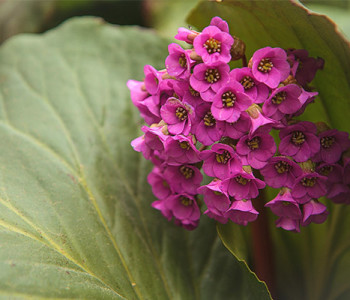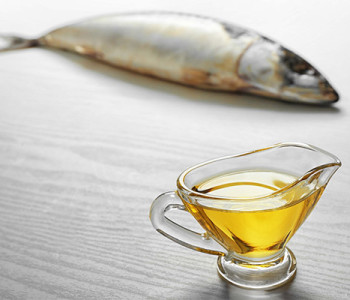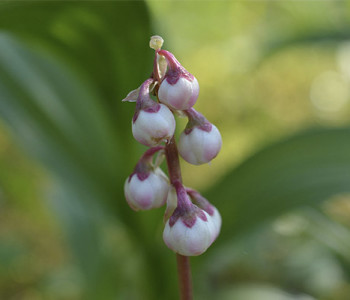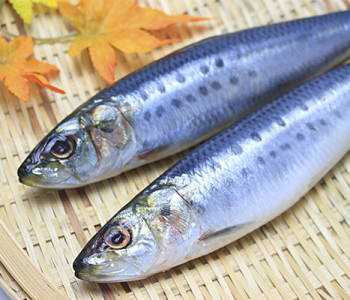Chickpeas: benefits and harm to the health of the body
Chickpea (Turkish nut) is a plant from the legume family. It is grown in many parts of the world, but it is most popular in the Mediterranean and the Middle East.
- What is chickpea
- What is the difference between chickpeas and peas
- Composition and calorie content
- Useful properties of chickpeas
- General benefit
- For women
- For men
- For kids
- When losing weight
- Can I use chickpeas for pregnant and lactating women
- Chickpeas in medicine
- With diabetes
- With pancreatitis
- With gastritis
- Chickpea-based traditional medicine recipes
- Nut in cosmetology
- The benefits and harms of sprouted chickpeas
- What can be cooked from chickpea: recipes
- Pork chops with chickpeas
- Chickpea and Harissa Soup
- How to choose and store chickpeas
- Harm and contraindications
- Side effects
- Interesting facts about chickpeas
What is chickpea
Sometimes chickpeas are confused with nuts or peas, as their seeds are very similar. That is why it is sometimes called Italian peas. It comes from West Asia and is an important element of Arabic cuisine.
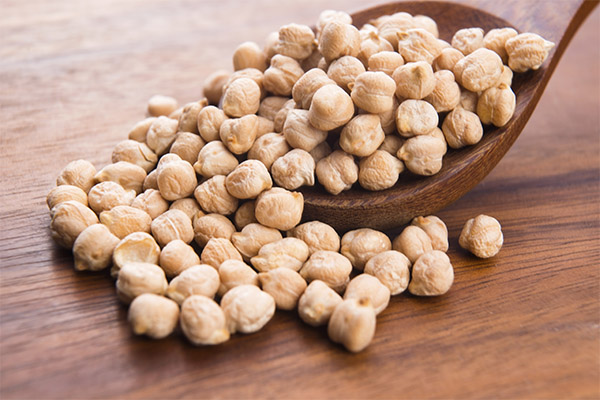
There are two main varieties of chickpeas: Kabuli and Desi. In the cuisine of Europeans, you can often find a variety of Kabuli cream yellow, with fairly large grains. Arabs value Desi, which has darker and slightly finer grains.
What is the difference between chickpeas and peas
Since chickpeas and peas belong to the legume family, sometimes they are not so easy to distinguish, but still each of them has its own characteristics. The first thing you should pay attention to is the shape of the beans. Chickpeas have rounded beans, unlike oblong peas. It is also worth noting that peas, as a rule, have a large number of green peas; in chickpea beans, on average, 2-3 yellow seeds are found. Chickpeas are rich in protein, carbohydrates and contain a fairly high percentage of fat. Peas, on the contrary, contain few proteins and carbohydrates and a small percentage of fat. Chickpea grows well in warm climates - peas can develop normally in temperate latitudes.
Composition and calorie content
Chickpeas are an excellent source of fats, proteins, carbohydrates, fiber, sugars and minerals. It also contains zinc, phosphorus, magnesium, manganese, copper, potassium, sodium, calcium, iron, folic acid and vitamins A, B (B1, B2, B3, B5, B6 and B9), C, E and K.
This combination of mineral and vitamin compounds has a positive effect on the circulatory system. Iron and folic acid protect against anemia, and vitamin K regulates the blood coagulation process, which is important not only in wound healing, but also during periods of heavy menstruation. Potassium is an essential electrolyte that normalizes blood pressure. You can also find a lot of fiber in chickpeas, which not only supports weight loss and fat burning, but is also important for the prevention of cardiovascular diseases.
Useful properties of chickpeas
General benefit
The list of useful properties of chickpeas:
- Promotes good sleep. Chickpeas are rich in amino acids, tryptophan and serotonin, which play an important role in regulating mood and sleep. The use of this bean helps to calm a person and a good emotional state.
- Strengthens the immune system. Chickpeas are rich in “good” iron, which helps to transport oxygen throughout the body and is necessary to maintain the immune system and normal metabolism.
- Provides the body with the "right" energy. Chickpeas, like all legumes, contain complex carbohydrates, which, as a rule, are rather slowly digested and processed into energy. As you know, there are two types of carbohydrates: simple and complex. Simple (fast) carbohydrates contribute to a sharp increase in sugar levels. While complex (slow) do the opposite, as they provide the body with energy gradually. In addition, chickpeas can be consumed with a low-calorie diet. Even a small portion of chickpeas can provide the body with a daily amount of carbohydrates.In this case, glucose enters the bloodstream gradually, unlike simple sugars contained in processed foods, which can cause spikes in blood sugar.
- Improves digestion. Chickpea is one of the foods high in fiber (about 6 to 7 grams per half glass). Unfortunately, modern diets contribute to the deficiency of this substance. Meanwhile, the fibers help digestion by promoting food through the digestive tract, preventing the onset of IBS symptoms and constipation. Fibers are able to draw fluid from the body, linking it to most of the stool that forms, containing toxins and waste that must be removed from the body. Fiber also helps balance the pH and the number of bacteria in the intestines, increasing the number of beneficial ones while reducing the number of harmful ones. An imbalance of intestinal flora is often associated with many digestive problems.
- Improves heart health. The presence of soluble fiber, antioxidants and polyunsaturated fats makes chickpeas a valuable product for maintaining heart health. It has been found that moderate daily consumption of this bean lowers LDL cholesterol, triglycerides and total cholesterol within one month.
- Cancer protection. The substances contained in these beans have protective properties that help prevent colon cancer. Studies in mice have demonstrated that beans are also able to stop the formation of cancer cells. Since beans act as a defense of the digestive system against harmful bacteria and the accumulation of toxic substances, they create a healthier environment with a balanced pH level, therefore, cancer cells cannot multiply under such conditions.
- Source of vegetable protein. Beans are a great source of protein. As you know, this is an important macrocell that is involved in the functioning of vital organs, muscles, tissues, and even affects hormones.
- Promotes cell regeneration. Chickpea contains folates, which are a type of vitamin. This substance is directly involved in the creation of new cells.
For women
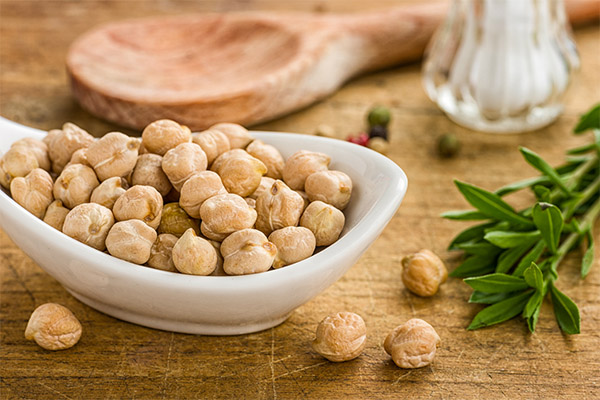
- Women Health. The phytochemicals contained in beans are extremely useful for the prevention of cancer and osteoporosis. This product is also great for reducing hot flashes after menopause.
- For facial skin. Manganese causes cells to fight free radicals that cause wrinkles. Molybdenum cleanses the skin by removing sulfites. Folates and vitamin B affect the processes of restoration of the skin after exposure to the sun.
- Folic acid. Chickpeas contain a large number of folates, which are considered important nutrients for the expectant mother and fetus.
- Gives a feeling of satiety and helps with weight loss. High protein and fiber help you feel full and control your appetite. Beans contain macronutrients that help control blood sugar and therefore support energy. Since chickpeas are low in calories, high in protein and fiber, it is ideal for those who need to lose weight.
For men
- Vegetable protein. Chickpea contains a large amount of vegetable protein, so regular consumption of this bean will help men who want to build muscle.
- Benefits for hair. These beans perfectly strengthen the hair. It is recommended to regularly use chickpeas for balding men, as this product contains a large amount of protein and manganese, which help prevent hair loss.
- Natural aphrodisiac. Since ancient times, chickpeas have been used as a means to increase potency. Today, this product can even replace medicines, but only if you use regularly infusions of raw beans.
- It provides energy. Chickpeas are able to provide the body with a large amount of energy, which every active man needs so much today.
For kids
Chickpeas can be eaten by children when they reach the age of eight months. However, many pediatricians recommend giving beans to a child only after a year and a half. Without fail, the chickpeas are ground to a homogeneous consistency. You need to feed the baby in small portions.
The benefits of chickpeas for children:
- General development. Chickpeas are an excellent source of protein, which is necessary to create new cells, muscles, cartilage, blood, hormones and enzymes in a child. A growing baby needs a lot of protein.
- Brain development. Chickpeas contain a small amount of polyunsaturated fats. Unsaturated fats are essential for the baby, as they help in the development of the brain, provide energy and soften the skin.
- Prevention of anemia. Chickpea is an excellent source of iron, which is an essential element for creating new red blood cells. If the body does not receive the required amount of iron, it cannot create new red blood cells. This condition is called anemia. Chickpeas will help prevent the development of this disease in children.
- Strengthens bones and muscles. Calcium is essential for bone growth and maintaining healthy teeth. It also helps to develop muscle tissue and the nervous system.
When losing weight
Chickpeas are a great source of protein. This nutrient can help you lose weight, as it has a high thermal effect - 30%, which means that you can burn up to 30% of calories during digestion. Protein also helps to feel full, so the likelihood of overeating is reduced.
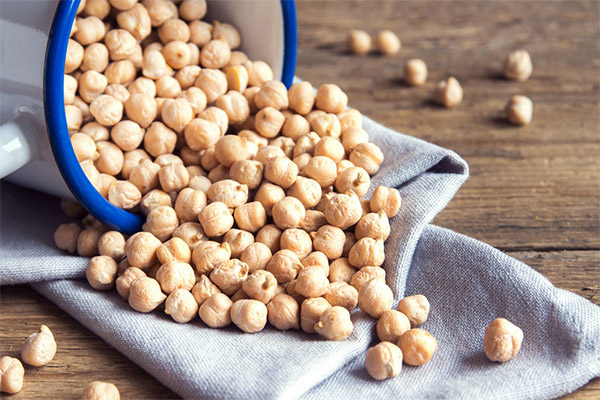
Chickpeas are rich in fiber, which affects body weight. Fiber has a saturation effect, which means that it also contributes to a feeling of satiety. It slows the release of sugar from food into the blood. Avoiding sudden surges in blood sugar, you can not feel hungry.
Chickpeas are an excellent source of substances such as phosphorus, zinc, iron and folates. Eating foods rich in nutrients helps maintain energy during weight loss, so a person will feel alert.
Can I use chickpeas for pregnant and lactating women
Over the years, several studies have been conducted that made it clear whether chickpeas can be used by pregnant and lactating women. Here's what the studies say:
- Pregnancy is a time when a woman tends to gain weight. Chickpeas are a good way to prevent obesity and stay in good health.
- Chickpeas reduce the risk of a heart attack.
- Chickpeas increase energy levels during pregnancy.
- The need for food increases during pregnancy, as the fetus needs to be saturated. During this period, the body needs more proteins, vitamins, minerals and fiber. Just these substances are present in large quantities in chickpea.
- Beans are a rich source of iron and vitamin B6, which are very important for the development of the fetus.
- Chickpea also contains choline, which is necessary for maintaining and developing the brain and nervous system.
- One cup of chickpea contains 65% of the daily value of manganese, which is important to meet the growing needs of the fetus.
- Copper, zinc and selenium are natural antioxidants that play a decisive role in ensuring the health of the fetus, as they can protect it from free radicals.
Chickpeas in medicine
The beneficial properties of chickpeas are very often used in medicine, because the product is shown to people:
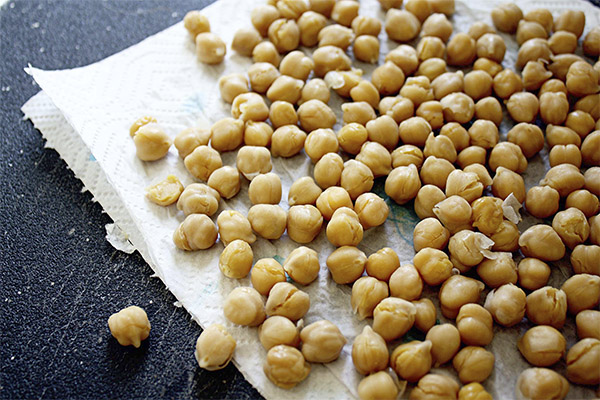
- As a prevention of cataracts.
- To reduce the risk of strokes, heart attacks and disorders associated with the cardiovascular system.
- To normalize blood pressure.
- To improve potency.
- To prevent the occurrence and dissolution of gallstones.
With diabetes
It is widely believed that diabetics are not recommended to consume beans because their carbohydrate content is very high. This myth is easy to refute, because chickpeas have a low glycemic index (35 units) and a load. The carbohydrates contained in this product are absorbed so slowly that they do not cause an increase in blood glucose, as occurs with bread, rice, potatoes or pasta. Therefore, people with diabetes should eat chickpeas: these beans do not raise blood sugar, allowing you to control the general condition.
With pancreatitis
As you know, beans are not recommended for people with similar diseases, but this is not always the case. For example, if pancreatitis passes in a fairly mild form, you can include chickpeas in the menu, but only in small quantities.
Since beans contain protein that is needed for recovery processes, chickpeas will even be beneficial. For example, it can be used as an ingredient in vegetable soups or mashed potatoes. It is important that the beans are served in a grated form.
With gastritis
Like all legumes, chickpeas contain a number of components that make it difficult to digest food. This means that it will stay in the stomach longer and pains and heaviness in the stomach are likely to occur. Therefore, it is recommended that the product be processed before use. Also worth paying attention to:
- People with gastritis or an ulcer are advised to consume chickpeas in smaller quantities than usual.
- It is advisable to eat beans chopped, as this will be better digestion.
- If the chickpeas are not sufficiently crushed, then it can cause the formation of intestinal gases.
In case of severe or frequent discomfort when using this product, it is recommended to consult a doctor.
Chickpea-based traditional medicine recipes
Peas chickpeas are a bean product that is popular in folk medicine. Its value is explained by the high content of minerals and vitamins. It is rich in fiber, protein, fats. This culture is especially appreciated for the presence of selenium, which improves brain function, prolongs youth and inhibits the growth of pathological cells.
Recipes:
- To cleanse the body of poisons and toxins, 100 g of peas are poured with a glass of water, insisted for 8 hours. Then drain the water and beat the chickpeas with a blender. The resulting porridge is eaten raw for a week, after which they take a similar break.
- With cough and bronchitis, a decoction is prepared. A glass of crushed beans is poured into 2 liters of water. Boil for half an hour. Add a little butter to the finished product. Drink a drink during the day. Duration of use - until symptoms are relieved.
- Sprouted beans will help with poisoning. They are poured with a thin layer into a small container and poured with water. Water is added daily, as peas absorb it. In a couple of days, seedlings will appear, from which they make a decoction. 2 large spoons pour 0.5 liters of water, boil for a quarter of an hour. The broth is filtered and drunk.
- For the prevention of disease. 100 g of beans are poured into a glass of water, left overnight. By morning, the peas will swell and become soft. They are eaten raw.
Nut in cosmetology
In cosmetology, chickpeas also found their application. For example, in order to get rid of black spots on the face and improve skin color, chickpea flour is usually used. The ground grains of this bean act as a natural scrub. This composition is suitable for all skin types. In addition, chickpeas masks can be used in case of acne, inflammation of the skin, as well as peeling.
The benefits and harms of sprouted chickpeas
Chickpeas, like most beans, contain anti-nutrients that can make digestion difficult. Germinated chickpeas improve the digestive tract and increase the level of vitamins and proteins.
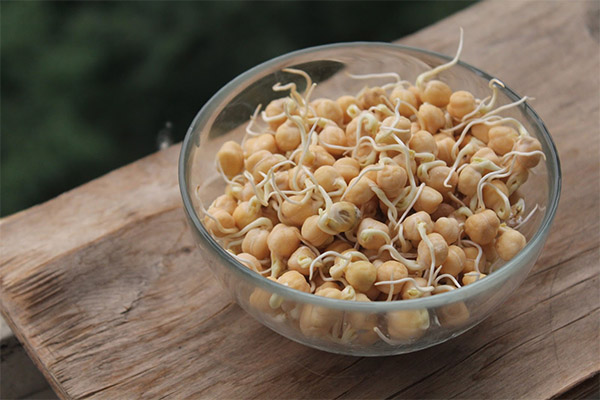
Useful properties of sprouted chickpeas:
- Beans are able to saturate the body with nutrients and can permanently relieve hunger.
- Group B vitamins and fiber, which are found in sprouted beans, help speed up metabolism and metabolic processes.
- Helps normalize blood sugar.
- Gives energy and lowers cholesterol.
Sprouted chickpeas are added to soups, and cereals are made from it. Use better at lunchtime.
Harm
Despite the fact that chickpeas have many beneficial properties, their use can also be harmful. For example, with individual intolerance to sprouted beans, it is forbidden to add this product to the diet. Beans can also cause excessive gas formation, so consumption should be moderate.
What can be cooked from chickpea: recipes
Please note: before boiling chickpeas, it should be soaked for 8-12 hours.
Pork chops with chickpeas
Ingredients:
- olive oil;
- red onion - 1 pc.;
- red wine vinegar –2 tbsp. l .;
- sugar - 1 teaspoon;
- chicken stock - 100 ml;
- chickpeas - 400 g;
- parsley;
- pork chops - 2 pcs.
How to cook:
- Add 1 tablespoon of olive oil and onion to the pan, salt well and cook it all until the onion is soft (about 10 minutes).
- Then add vinegar, sugar and simmer for about 3 minutes.
- Put pre-cooked chickpeas.
- Mix everything and add parsley. Beat this composition together with the rest of the ingredients with a blender. A homogeneous mass should be obtained.
- Fry the composition formed in the cutlet, you need for 5-7 minutes on each side.
Chickpea and Harissa Soup
Ingredients:
- onion - 1 pc.;
- olive oil;
- carrots - 2 pcs., cut into cubes;
- celery - 2 pcs., cut into cubes;
- ground caraway seeds - 0.5 teaspoon;
- Harissa - 2 tbsp .;
- chickpeas - 400 g;
- vegetable broth - 750 ml;
- tomato puree - 2 tbsp;
- parsley.
How to cook:
- Fry the onion in a pan with 1 tablespoon of olive oil.
- Add carrots and celery to the broth. Cook for 5 minutes.
- Then put caraway and harissa and boil it for another 1 minute.
- Add the remaining ingredients, season and bring to a boil. Cook for 15 minutes.
- Add parsley before serving.
How to choose and store chickpeas
Rules for the selection and storage of chickpeas:
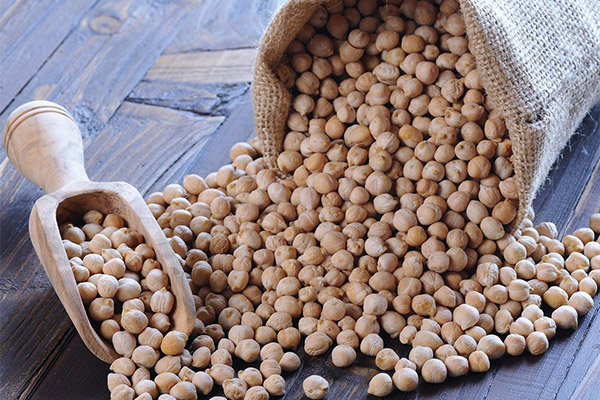
- When choosing beans, they should be fairly solid, clean and have the same color. Do not take beans if they are wrinkled, have a whitish coating.
- Raw beans are recommended. They can be easily stored in an airtight container or plastic bag.
The organoleptic qualities of these legumes, like all useful properties, remain for a long time - throughout the year after collection.
Pre-cooked or fried beans have a limited shelf life. In addition, frying affects their nutritional value. It is recommended to store cooked chickpeas in the refrigerator for no more than 5 days.
Harm and contraindications
Contraindications:
- Chickpeas are not recommended for older people.
- For children or people with a weak digestive system, chickpeas can be consumed only in small quantities and exclusively in grated form.
- Also, do not get involved in beans for people with a bladder ulcer.
- With individual intolerance, it is recommended to abandon the beans.
Side effects
After eating chickpea beans, some people may experience stomach cramps and excessive gas formation. Let's take a closer look at the reasons for this.
Gas formation
High-protein legumes can cause intestinal gas production. The degree of excess gas formation usually varies. It is recommended to use chickpeas in small quantities, allowing metabolic processes to get used to this food. A slight flatulence should not cause concern, however, if the gas level is so high that it causes abdominal pain or discomfort, you should abandon the beans.
Allergy
People who are allergic to soy, lentils or even latex may be allergic to chickpeas. The reaction is most often manifested by nasal congestion. Therefore, after eating beans, breathing problems may occur.
Side effects may also occur:
- acne
- runny nose;
- headache;
- itching of the skin.
Interesting facts about chickpeas
Some interesting facts about chickpea:
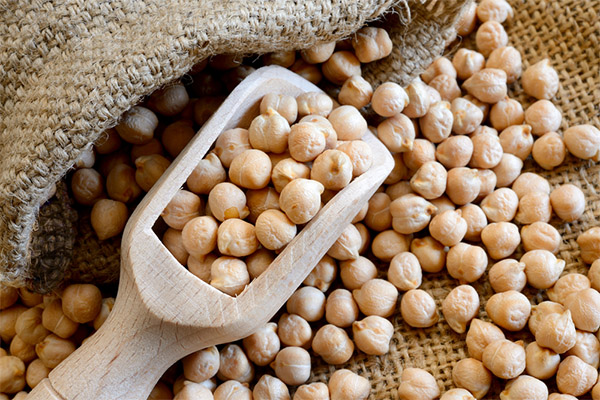
- Chickpeas have many different names around the world, such as tobacco beans, Bengal beans, Egyptian peas, sesi beans and Kabul Chan.
- Chickpeas come in many forms and colors. There is black, green, red and brown chickpeas.
- Chickpeas are an excellent source of fiber and are great for maintaining a healthy digestive system. Dietary fiber in chickpeas can help lose weight.
- Chickpeas are very versatile. On the Internet you can find a huge number of recipes with its addition.
- Ground chickpeas have been used as a substitute for coffee since the 18th century and are still widely used as an alternative.
- It is recommended to use chickpeas to vegetarians and vegans, since it can saturate the body with those substances that they usually lack.
«Important: all information on the site is provided exclusively in fact-finding purposes. Before applying any recommendations, consult with a profile specialist. Neither the editors nor the authors are liable for any possible harm caused materials. "

